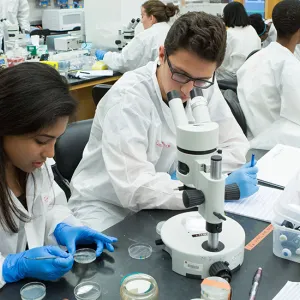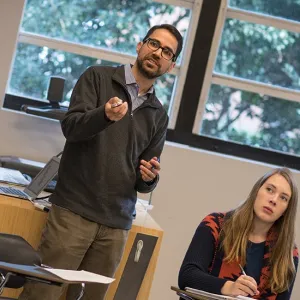Through the 2015 AAU Campus Climate Survey, universities across the country discovered a common gap: how much they didn’t know about their students’ experiences on campus.
At Columbia University, this made researchers want to know even more. They wanted to understand the social and institutional factors behind individual encounters and use such knowledge to reduce sexual assault and other forms of gender-based misconduct on campus.
Led by a professor of sociomedical sciences and a professor of medical psychology, Sexual Health Initiative to Foster Transformation (SHIFT) is a comprehensive research project that examines the individual, interpersonal, and structural factors that shape sexual health and sexual violence for undergraduates at Columbia University and Barnard College.
SHIFT engages students in an ongoing dialogue to learn about the climate of sexual health in a holistic way. Students are invited to describe their experiences with dating, sex, friendships, partying, academics, peer pressure, and more through interviews, focus groups, and participant observation.
Believed to be the first study of its kind to use ethnography, survey, and diary studies to examine both sexual assault and sexual health, the project will lead to recommendations to promote consensual and satisfying sexual interactions and prevent sexual assault.
“We think SHIFT will advance the science of sexual assault prevention everywhere,” according to the initiative’s FAQ. “It’s a serious issue, and one that transcends the boundaries of our campus.”
SHIFT is one of several initiatives Columbia created as a result of the AAU survey. The university also introduced pre-arrival tutorials on sexual respect as part of new-student orientation; the Sexual Respect and Community Citizenship Initiative, a program required for all new students; and the Gender-based Misconduct Prevention Task Force, a working group focused on programming and other efforts to reduce the incidence of sexual assault, sexual harassment, and other gender-based misconduct.



